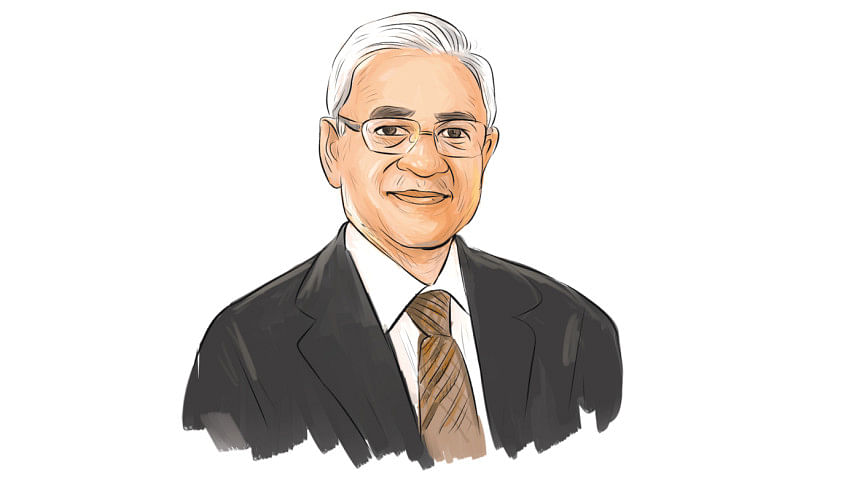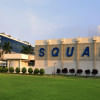Square now in expansion mode

Bangladeshi conglomerate Square Group is going for a massive expansion both at home and abroad, said Tapan Chowdhury, managing director of Square Pharmaceuticals Ltd, a key arm of the group.
In an interview with The Daily Star, Chowdhury said the pharmaceutical unit in Pabna has already gone through an expansion.

That included the construction of a new plant in the Pabna BSCIC industrial estate to produce steroids, hormones, and nasal sprays.
"The expansion is ongoing as demand continues to rise, both in domestic and international markets," Chowdhury said.
"We are also looking for collaboration with international companies for further expansion of the pharmaceuticals unit."
The managing director of Square Pharmaceuticals declined to share details of the investment or total costs for the Pabna facility expansion.
He, however, said that the group is eyeing both European and African markets for its products.
This year holds special significance for the conglomerate as it marks the birth centenary of its founder, Samson H Chowdhury.
To honour his legacy, the group plans to set up a large hospital in Dhaka's outskirts, in the Amin Bazar area, mainly for middle-income people.
The original plan for the hospital was slated for Pabna. However, the lack of interest among skilled doctors to relocate away from the capital prompted the decision to move it closer to Dhaka, where Square owns the required land.
Chowdhury said the new hospital will have 500 beds and will be staffed by many of the doctors currently employed at Square Hospital.
"It will not be expensive, but we will maintain the same standards of care," he added. The group also plans to set up a medical college, a nursing institute, and a care home for the elderly on the same site.
According to Chowdhury, these will help build a sustainable pipeline of healthcare professionals and eventually serve society better. He hopes many of the students from these institutions will go on to work within the hospitals owned by the group.
The MD said Square is also expanding its existing pharmaceutical operations in Kenya and exploring opportunities to set up a manufacturing unit in Saudi Arabia.
Talks are underway with a Saudi company to jointly develop a textile venture there, although the move depends on government approval for overseas investment.
"The government should allow such investments after due diligence," Chowdhury said.
At home, Square is scaling up its food and beverage, toiletries, and textile units to meet growing demand.
"Despite being a nation of 18 crore, many products such as beverages and biscuits are still heavily imported," he said. "There is enormous potential to fill that gap locally while also catering to export markets."
He added that public trust in Square products comes from the company's focus on quality.
Chowdhury said their textiles and garments division continues to perform well. The spinning units are being expanded, and the garment wing alone currently exports goods worth around $800 million annually.
Speaking about the reciprocal tariff by the US administration, he expressed concern over the rates, saying that the 35 percent duty poses a threat to Bangladesh's overall apparel exports.
"If properly negotiated, the rate can be brought down," he said.
The group, with an annual turnover of $3 billion, now employs more than 70,000 people and expects to create many more jobs as new plants and hospitals come online.
Unlike other conglomerates, Chowdhury said Square is not an owner-driven company. Rather, it operates like a family, where executives are empowered to make decisions.
He called for a level playing field across industries, stressing that the rule of law must apply equally to all businesses, regardless of size.
"Big companies should act responsibly, as smaller ones often follow their lead," he said, referring to industry setbacks following the political changeover in August last year.
Regarding consistent energy supplies to factories, Chowdhury urged the government to invest more in domestic gas exploration or ensure adequate liquefied natural gas (LNG) imports to meet industrial demand.
He said that Square is installing solar panels in the northern districts to reduce the group's reliance on fossil fuels.
He advocated for greater transparency in petroleum imports to check wastage and embezzlement, which he said drives up business costs.
"Bangladesh faces many challenges in doing business," he said. "But there are just as many opportunities, and the challenges can be overcome."

 For all latest news, follow The Daily Star's Google News channel.
For all latest news, follow The Daily Star's Google News channel. 




Comments